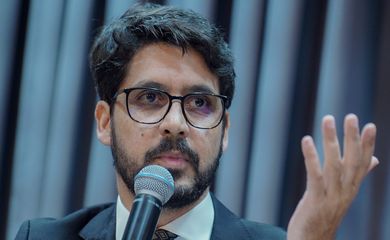Brazil’s public broadcasting network sees major expansion

Brazil’s National Public Broadcasting Network (RNCP), coordinated by Empresa Brasil de Comunicação (EBC), will now include stations from 11 state and municipal universities. The agreements were signed on Wednesday (Mar. 6) at an event at the Planalto presidential palace.

The partnership should integrate 15 more TV and 20 radio channels into the network, which will now have a total of 117 TV and 155 radio stations.
Creating regional content, guaranteeing access to information, and strengthening public broadcasting will be the top benefits of the agreements signed today, said EBC President Jean Lima.
He stressed the role of the political support of the president’s Secretariat for Social Communication (Secom) in strengthening the public broadcasting system.
“This is our plan to reach out to the people, bring our content further inland and give people access to regional content and information, thereby combating fake news and strengthening democracy.”
EBC’s Director-General Maíra Bittencourt pointed out that state and municipal universities already have education, culture, and regional goals, which are being thus incorporated into EBC’s work. “They bring themes related to public broadcasting, regional culture, diversity, multiple accents, and what’s happening in terms of journalism in each of the municipalities throughout Brazil.”
Secom Executive Secretary Ricardo Zamora said the move the secretariat’s most important project.
“One of the roles of public broadcasting is to encourage local production. What we’re aiming for at the end of this process is the democratization of communication and the promotion of quality local production, reproducing the quality and diversity of Brazilian cultural production,” said Zamora, who represented Secom head Paulo Pimenta.
Last year, EBC had signed cooperation agreements with the National Association of Directors of Federal Higher Education Institutions (Andifes) and 31 federal universities, as well as 16 federal educational institutes in a second stage.
Universities
The president of the Brazilian Association of State and Municipal University Presidents (Abruem), Odilon Máximo, celebrated the visibility stemming from the content produced by the universities as a result of the partnership.
“We’re not just going to be recipients of information. The content produced by our universities will also be part of the network and can be transmitted across Brazil,” said the president of the organization, which represents 45 state and municipal universities.
In the view of Brazilian Association of University Television President Fabiano Pereira, the move is another milestone in the reconstruction of Brazilian public broadcasting. “We hope it will be a lasting reconstruction, never to be threatened again.”
The Network
The National Public Broadcasting Network (RNCP), established in the law that created EBC, is made up of TV and radio stations that operate throughout Brazil. EBC is tasked with keeping it operational and investing in its expansion.
EBC was created in 2007 to be in charge of Brazil’s federal public broadcasting system, including the radio and television. The company manages Rádio Nacional and Rádio MEC, Radioagência Nacional, Agência Brasil, and TV Brasil, as well as the government channel Canal Gov and the Voz do Brasil program.



